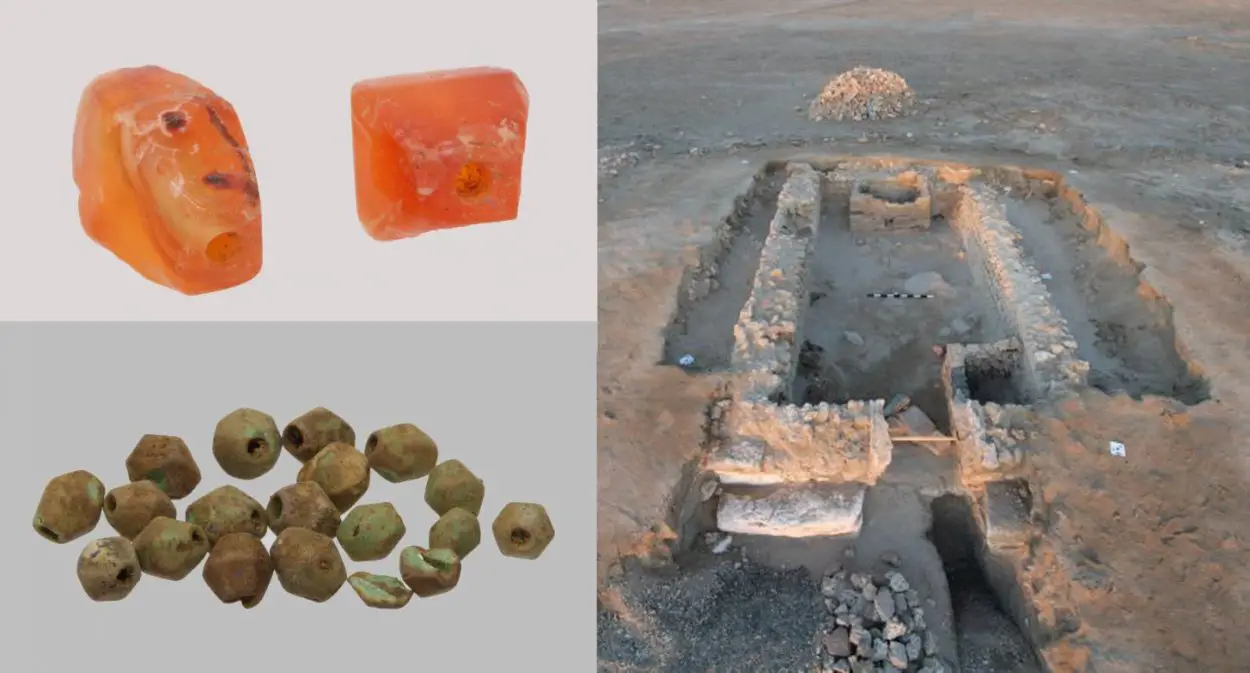Polish archaeologists have announced the discovery of a tomb complex in the vicinity of the ancient seaport of Berenice Troglodytica in Egypt.
Berenice was constructed by Ptolemy II during the early 3rd century BC and was a prosperous trading port throughout antiquity. During the 4th to 6th century AD, the region was inhabited by the Blemmyes, an Eastern Desert people that occupied Lower Nubia and established a small independent kingdom centred on Kalabsha (a promontory located near Aswan in Egypt).
Archaeologists from the Centre of Mediterranean Archaeology of the University of Warsaw uncovered a tomb complex containing seven skeletons buried in multiple layers. The burials were positioned with the lower limbs resting on the chest and date from around 1500 years ago.
Dr. Mariusz Gwiazda from the Centre of Mediterranean Archaeology of the University of Warsaw said: “This is not a natural position. In order to achieve it, the deceased had to be bound with ropes or tied with cloth.”
The artefacts deposited within the tomb suggests that the burials represent an elite class who were buried with imported beads made from onyx (a silicate mineral chalcedony) and carnelian (a brownish-red mineral) that came from Pakistan, India and even Indonesia. The team also discovered silver rings, earrings and bracelets made of ivory.
Excavations also revealed evidence of ancient funeral rituals by the discovery of a platform and animal remains likely used for sacrifices. On the platform was bowls used for offerings and several amphorae placed upside down that were emptied during ritual practices.
Header Image Credit : Dr. Mariusz Gwiazda





